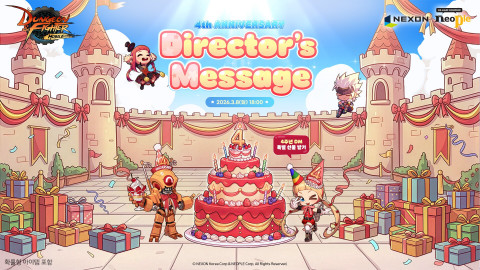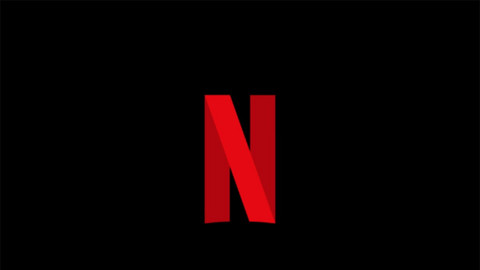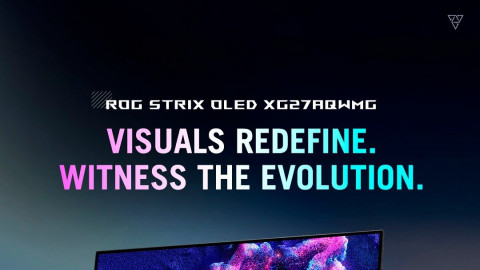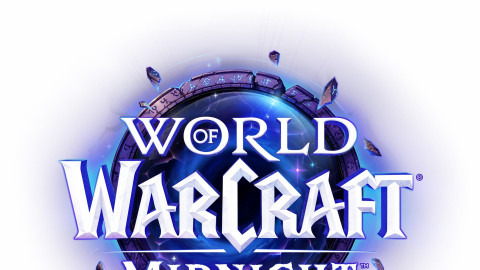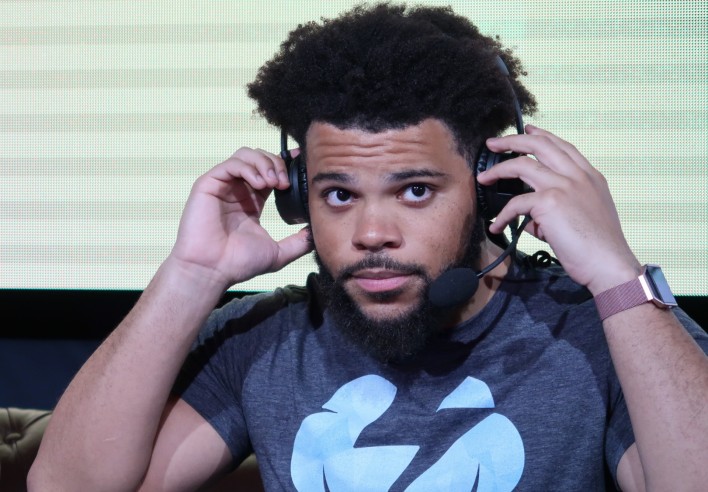
Two days ago, Mychal Ramon Jefferson, better known as Trihex, was in the middle of his political stream. On-screen he showed the subtitles to the Democratic Party's debate, while he provided commentary and discussed topics with his chat. Then all of a sudden, everything went black. Trihex's stream had been taken down after a DMCA strike. After hours of frustration, it turned out that the strike was wrongly applied, and Trihex's stream was unbanned.
It's the latest incident in an ongoing war between content platforms like YouTube and Twitch, their users, and the 1998 Digital Millenium Copyright Act. Trihex spoke to Inven Global's Tom Matthiesen about his ban, and explained what he thinks needs to be done to improve the situation for digital content creators.
First of all, walk us through everything that happened surrounding your recent Twitch ban.
So, the last Democratic debate before Super Tuesday was going down in South Carolina, being headlined and operated by CBS News. I, in typical fashion, was excited to cover the debate because as usual there was a lot of misinformation, a lot of smears. You had Bloomberg, who had allegedly bought the audience—he has ties, and it seems like he kind of corrupted the DNC with his money and influences. People have been lying about Bernie [Sanders] and smearing him, desperately trying to get ahead in the polls. Bernie's doing well, so everybody is attacking the frontrunner. So me, advocating for the candidate I support, I was out here providing commentary for the debate.
Let's go back in time a bit: in August 2019, when we were covering an earlier debate, I did get a legitimate DMCA strike from CNN for using their footage. So I've wisened up since then, and this time around I only had the subtitles—the automated transcripts from YouTube—visible on my stream. I did not use their audio, I did not use their video. At most I had about 20% of their video on screen, but only the portion that's visible for subtitles.You can't watch me to replace watching them, so I'm not competition for them.
So I'm watching the debate, doing my thing, and about an hour and a half into the two hour duration of the debate I go offline. I get a message from Twitch saying that I was handed a DMCA copyright takedown. So that'd be my second one. It was pretty scary. Contextually: unlike a suspension from Twitch for TOS violation, a DMCA takedown is permanent and does not get removed from your record. So once you get three, you're permanently banned, as is the platform policy. Pretty bonkers, but it is what it is. So being on two strikes would mean that I have to operate my stream in a way where I have to consider everything I'm doing. Music I'm listening to, any YouTube video I skim through for commentary to talk about... It was very, very stressful.
You responded with a public post, voicing your anger about the DMCA. But then it was found out that the DMCA was issued by a fake company, trolling people.
I want to stick to the facts here because there is an ongoing investigation by Twitch. They determined it was fraudulent, but to my understanding they don't know who did this. It's an ongoing investigation so I don't want to feed any speculation.
Here are the facts: Whenever you get a DMCA strike from Twitch, they have to provide the company or person that is delivering the strike, as well as the party they're representing. So "PraxisPolitical" was the party delivering, saying they represented CBS News. They have to provide a contact email, and this is where the first red flag was. I sent an email asking whether there were any options to remove the strike because it affects my entire Twitch career. There was no valid recipient for the email address provided. The email was not real, it was made up. Then if you go to their website, it's a very barebones, Wizard-generated website. Notably, they mention that they have three offices: one in New Jersey, one in California, and the last one I forgot. But there were no addresses. They have no phone number, and only one contact email—a different one than they sent with the DMCA strike—which also didn't work.
So now we have two emails that don't work, which are supposed to be the two tangible ways of contacting them. There's no physical address, no EIN [Employer Identification Number], there's no tax ID, nothing. There is nothing tangible to show who actually owns this, or if this is even an actual company. I discovered this independently, on my own, during the hours that I was banned that night, trying to figure out what I should do.
We have a completely new company with no tangible credentials... and they were supposedly hired by CBS to enforce this DMCA? Rather than CBS using their own, internal legal department? Pretty weird, pretty suspicious. And I wasn't alone. As you saw, about eighteen hours later, Twitch notified me that they were doing an independent investigation from their legal department because there does seem to be foul play going on here. So I was immediately unbanned, and my strike was removed.
It wasn't just you—other streamers were banned as well.
Yeah. In total, eight streamers were taken down for DMCA strikes and it was all by the same company/person/troll, whatever. All the streamers were freed of their bans and strikes like I was.
Obviously it's good that Twitch restored your channel and removed the strike. But do you think they handled this case well, in the end?
Honestly, and this is a hot take: yes. Let me explain why. Due to how antiquated the Digital Millenium Copyright Act is, and due to how Safe Harbor currently works, Twitch has not enforced anything here, despite the misconception. Twitch hands out the suspension, but they're not the ones enforcing any copyright laws. They don't do anything until any third-party company informs them that there is some broadcast invading copyright law. If you, hypothetically, stream Avengers: End Game, Twitch isn't going to interfere and take you down immediately. They don't assume that you don't have the rights to stream that movie. Instead, some agent from Disney comes and say that you're invading their copyright, and that you have to be taken down. Twitch then acts on their behalf.
How Twitch behaves is exactly how Twitter, YouTube or any other platform with content creation cycles would behave. Twitch went above and beyond here because they had no obligation to verify the legitimacy of that claim. But when there was foul play at stake, they utilized their own legal team to investigate, and they determined that it was fraudulent. They didn't have to do that, and I really appreciate it. If they hadn't done that I would still have my second strike, and I would have to file a counter-claim. If anybody had responded to that counter-claim I'd have to go to court to prove that I did not violate copyright law, and now we're talking about a five to twenty-five thousand dollars I'd have to spend on an attorney retainer to even get that going. Many content creators can't front the bill for that.
It does still seem strange though. Twitch takes down a channel first, and then you have to hope for their generosity to conduct an investigation to prove you innocent. Otherwise, you'd have to either live with a false strike or pay thousands of dollars to prove your innocence.
It is unfortunate. But here's how it works: The liability is on Twitch if anyone is accusing any content creator on their platform of violating copyright. If someone is pointing the finger at me for being guilty of violating copyright for using a licensed song, or in this case watching a video unauthorized, and Twitch doesn't immediately take me down to address the problem, the liability is on them. By taking me down, the liability is on me. I have to then file a counter-claim saying that I have the right to show what I'm showing or listen to what I'm listening to, essentially.
This kind of deal does happen, you know. Hypothetically, if you pay enough money to Disney, you probably could stream Star Wars on your Twitch channel. Who is Twitch to assume that you didn't make that deal with Disney and gave them, like, five hundred million dollars to do so?
Still, these automated decisions do affect streamers' livelihood. It's literally your job.
Who is to say what is legitimate and what isn't? It is plausible that these mega-corporations hire third parties to enforce copyright law. The problem is that there is no accountability for whenever these things are done like they were to me. There is not a huge penalty for misfiring with a DMCA takedown, but there are massive consequences for the content creator. You're guilty until proven innocent, essentially.
Was I proven innocent? Yes. Was it fraudulent? Yes. But I still had a lot of stress, my stream ended abruptly and I did lose revenue because I didn't generate content, which I need to do for my job. So there hasn't been justice yet, but again there is an ongoing investigation so I don't want to get more into that for now.
But there is an open dialogue here to be had, concerning two factors. One: is the DMCA takedown process on all platforms antiquated? And second: the idea that a public forum such as a presidential debate can be a privatized event, ultimately suppressing information from the wanna-be-knowledgeable voters, is also very questionable.

So how should this system of DMCA strikes be improved then? For example, you can't reasonably ask of Twitch to keep a database with all companies' mail addresses from which they issue strikes.
It's a good question. It's bigger than just Twitch, obviously. This problem happens on YouTube all the time, and now it's just topical because it happened to me on Twitch. The ideal way to solve it, in my opinion, is that we have to advocate for a modernization of the Digital Millenium Copyright Act. The DMCA was instated somewhere around 2000, I think.
I looked it up for you: it was instated in 1998.
Look at that: it's over 20 years old! It was instated in reaction to Napster. It is so antiquated that it is not built-in with an infrastructure to deal with modern times now. It was before YouTube, Twitch, Twitter... before full-time content creators like myself were even a tangible thing. It's also way too expensive to defend yourself in the case of a DMCA. If I want to defend myself and say that I was creating content with fair use, I have to pay a lot of money to prove that. Most content creators don't have the resources to do so.
So yeah I would advocate for a modernization, an overhaul of the DMCA, which would involve Congressional action. That's a big uphill battle.
Right, big picture the DMCA needs to be overhauled. But in today's context, that seems like an almost insurmountable task. The content-creating community isn't large enough to create momentum behind this movement. What would be a faster, smaller-scale solution to the problem?
To reiterate: Twitch legally has no obligation to verify DMCA claims. They are prone to abuse, as you see right now, because someone just made a troll account and went wild with accusations. That is a broken system. If there was some more verifying, identifying which emails are real or not, of course that would significantly reduce the potential for abuse. I'd love to see Twitch do that, but I don't know how to approach that right now though, unfortunately.
Bans, DMCA's et cetera have happened in the past too. Have you had conversations with Twitch about improving the system?
The problem is that I'm kind of ignorant when it comes to DMCA's and flagging on a platform like YouTube. I don't know if there are consequences for falsely flagging there. We haven't heard yet from Twitch what will be done in this case, whether they'll make an example out of this troll. They lost around seventeen thousand viewers that night, and that's a lot of money lots for Twitch. They lose money with the system they have right now, so it's in their interest to improve it.
As of right now, to my knowledge, no-one has had a conversation with Twitch about it. I would love to get involved with those people and have a dialogue with them. If the opportunity presents itself to me, trust me that I'll be the first in line to be vocal about that.
Why don't you reach out, and create that opportunity?
Maybe I will! *laughs* I'm not at PAX East this weekend and there's Twitch staff there, so I can't speak to them. But I will work on that. I just can't right now, because of the ongoing investigation.
Going forward, with this experience under your belt, are you going to change anything about the way you stream? Maybe just change how you approach political events?
Great question, thanks for asking it. Some people would maybe take this as "Oh that was risky, maybe I should reconsider what I'm doing." But again, it was a troll. It was a fraudulent takedown. As far as I know, I'm in the clear. Let's also not conflate me with the other people. I haven't seen their streams, so I don't know if they were showing the footage of the debate. My stream only had the subtitles, because I had been taken down before and knew what to do. I did not have the full video feed and openly advocated to watch the debate on the official channels. I've always done this after I got my first DMCA strike.
I'm not going to stop doing what I want to do because of trolls. That's their ultimate goal. I'm not gonna let them win. I'll be happily covering South Carolina's primary, I'll be covering Super Tuesday, and I'll be covering the March Democratic debate as well. I'm assessing what I'd do differently, if anything, but it's pretty hard to cut down when even a transcript—the subtitles—is copyright.
Have you ever considered reaching out via your organization, Tempo Storm, to ask for a collaboration?
It is possible, but you're not guaranteed a response, and their rates may be bonkers. They may view you as direct competition to them, so you'd have to pay them a rate that would match like 20% of their advertisements, which is up to three hundred grand or something, you know? It's something I could explore one day if I continue to build this coalition if maybe one day they see me as an expansion rather than competition. But who knows, maybe one day!
-

Storyteller by heart. If something is competitive, I am interested in it.
Sort by:
Comments :0

